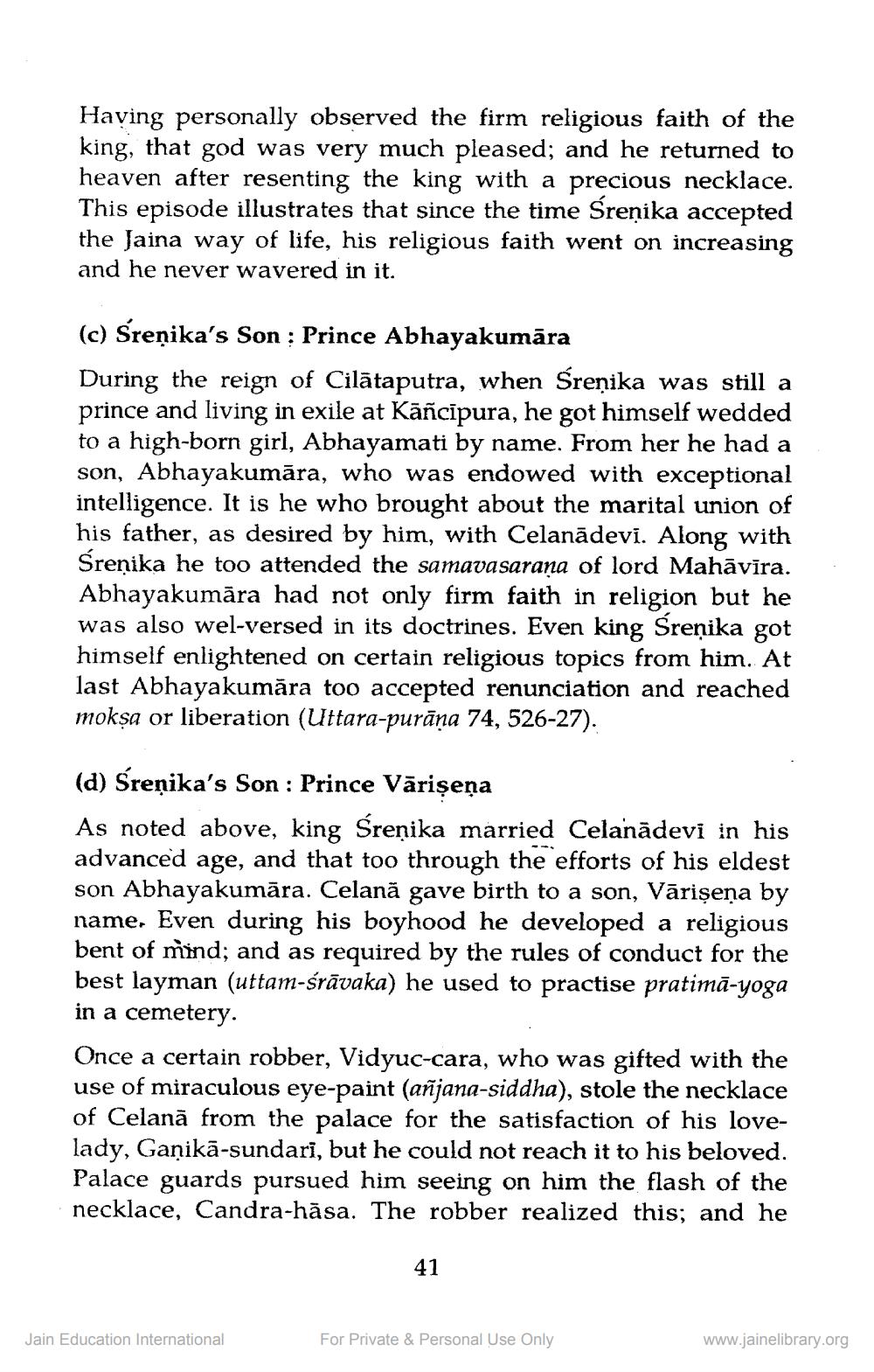________________
Having personally observed the firm religious faith of the king, that god was very much pleased; and he returned to heaven after resenting the king with a precious necklace. This episode illustrates that since the time Śreņika accepted the Jaina way of life, his religious faith went on increasing and he never wavered in it.
(c) Sreņika's Son : Prince Abhayakumāra During the reign of Cilātaputra, when Śreņika was still a prince and living in exile at Kāñcīpura, he got himself wedded to a high-born girl, Abhayamati by name. From her he had a son, Abhayakumāra, who was endowed with exceptional intelligence. It is he who brought about the marital union of his father, as desired by him, with Celanādevi. Along with Śreņika he too attended the samavasaraņa of lord Mahāvīra. Abhayakumāra had not only firm faith in religion but he was also wel-versed in its doctrines. Even king Sreņika got himself enlightened on certain religious topics from him. At last Abhayakumāra too accepted renunciation and reached mokṣa or liberation (Uttara-purāņa 74, 526-27).
(d) Sreņika's Son : Prince Vārişeņa As noted above, king Śreņika married Celanādevi in his advanced age, and that too through the efforts of his eldest son Abhayakumāra. Celanã gave birth to a son, Vārişeņa by name. Even during his boyhood he developed a religious bent of mind; and as required by the rules of conduct for the best layman (uttam-śrāvaka) he used to practise pratimā-yoga in a cemetery. Once a certain robber, Vidyuc-cara, who was gifted with the use of miraculous eye-paint (añjana-siddha), stole the necklace of Celanā from the palace for the satisfaction of his lovelady, Ganikā-sundari, but he could not reach it to his beloved. Palace guards pursued him seeing on him the flash of the necklace, Candra-hāsa. The robber realized this; and he
41
Jain Education International
For Private & Personal Use Only
www.jainelibrary.org




